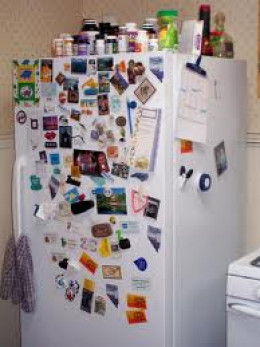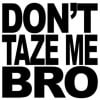When did overeating become a disease/sickness?
When did overeating become a disease/sickness?
...centuries ago, people's main preoccupation was loosing appetite. In part, because it typically meant that you could be suffering from consumption (TB), or, perhaps a venereal disease of some sort or other? All said, no one in those days associated gluttony (using this term) with a sickness. When did this change?Overeating became a disease when it reached the level of obesity and morphed into heart disease, stroke, diabetes, and cancer.
Well said. I was seeing documentary stating people in starving countries (Mexico, India) are now overweight, because now eat, - not food, but food products - p.chips, candy bars, soda, etc.
I do not know the definition of overeating sickness because all of my family members are skinny. I know it's an awkward answer but that's how I feel. I know many people who are eating a lot but fit and living healthy. On the other hand I know people who are always dieting to lose weight but can't do so.
Pioneers ate huge breakfasts and dinners but they worked their asses off. Today people eat unhealthy food full of fat, sugar and carbohyrades and no physical exercise. Centuries ago the food was pure, no additives and not a lot of sugar. Food and excercise was the secret then and it is the problem now. In the past you at least had to walk. Hard work and a good meal. Today a good meal and sitting at a desk all day. We are no longer physical. We eat and eat but we don't walk and we don't chop wood or work in the fields.
In those days, there were no flavor enhacements - only sugar, salt, and they also used pork fat, because it makes food taste really good.
Anything a human being does can be abused, drinking, eating, video games. If the person has an addictive personality, and turns to food for comfort or something along those lines, it can in time become an addiction.
It is very hard for people who are not troubled by a particular addiction to understand how someone can become addicted: they tend to think the person is lazy or weak.Thank you. I think it's interesting how 200 years ago people ate large quantities of food and no one associated that with "eating disorders," but in fact with good health; today, you're a glutton.
Over eating became a illness (obesity) when under activity became the norm. Centuries ago people ate in abundance when food was abundant (after a kill or harvest) because on like the modern man they couldn't pop out to the nearest supermarket when the larder went dry.
Of course all our labour saving devices weren't invented either; hence Rome wasn't built in a day. Travel was mainly by foot unless you were wealthy enough to own a horse; and horse riding burns a few calories. People walked and people worked using their own brut strength and they sure weren't eating Mcdonalds!
Today we are slaves of modern technology; many of us don't even eat fresh foods and must of us don't walk the lenght of ourselves.
In answer to your question; in a nut shell, when technology evolved to do the hard work and humans decided to sit on the fence, food became a luxury and overeating became an illness... too much of anything will always be bad for you; eventually...I agree with Perspycacious. When the undeniable links between excess weight and various diseases including diabetes, arthritis, cancer, etc. became clear, the medical community classified overeating as a disease. If you really watch people around you eat you may see some startling differences in eating behaviors. In addition overeating is a disease that is common here in the west but it is gaining steam as our chain restaurants and large portion sizes move east.

"When did overeating become a disease/sickness?" I know, isn't that just stupid! Disease! REALLY? Yea, that's what liberals want you to believe so they can control you and what you eat. What they won't tell you (but everybody knows) is people have metal fillings in their teeth. Their refrigerator magnets keep pulling them into the kitchen. That's why it's difficult for people to lose weight!over eating is a disease. It will result to obesity and various illness occur in long term run. Weight increase and normal growth is affected too.
As many others have said in the past the detrimental affects of obesity weren't known.
But if you look back in time you will also see that what we perceive as beauty has also changed.
200 years ago being fat was a sign of wealth and prosperity. Look at adverts from those times and you won't see a thin man or woman anywhere.
Loo at statistics as well and you will see that people were much shorter on average and of course life spans were much shorter.I think people have already answered your question. However, you may be interested to know that the first case of obesity was reported in the 1800's.
And when all's said and done, gluttony is a sin (and I can say so because I have been a food addict/overeater).
The thing is that overeating/food addiction is on the same level as drug and alcohol addiction, but may actually be more devastating to give up since people can stop using substances, but a food addict cannot stop eating food.I think overeating became a disease when it started to make people fat and unhealthy and cause early deaths. I don't the act of overeating is a disease, but I do think it causes a lot of diseases.
Related Discussions
- 28
How to avoid diabetes
by HubPages 15 years ago
How to avoid diabetes
- 47
Why is Obesity being considered a disease?
by Kevin W 12 years ago
There are conditions/disorders that can cause weight gain, but there are also lifestyle changes that come with them and control it. In my opinion obesity basically comes down to bad habits, bad choices and laziness. What are everyone's thoughts on this?
- 97
Are you kidding me,"tweens and anorexia?"
by RKHenry 16 years ago
Has anybody read that article in Parenting, school years monthly addition?Any thoughts? My thoughts? Scares the hell out of me. 2009 National Statics for American Tweens-(as per the National Eating Disorders Assoc.):42% of kids first through third grade want to be thinner.81% of...
- 17
How do you feel about the latest stats on obesity?
by nightwork4 13 years ago
How do you feel about the latest stats on obesity?do you think they are accurate and do they bother you?
- 15
Is being overweight a real problem?
by Infopedia 14 years ago
Within today's society it is pretty much the norm to be overweight...Is it a real problem though?
- 9
Shall we implement "Fat Tax" on fast food or on overweight person in order to fi
by Dalriada Books 14 years ago
Shall we implement "Fat Tax" on fast food or on overweight person in order to fight obesity?Lawmakers in UK and Sweden proposed 'fat tax' on fast food, but in reality it's not easy to do that. It might be easier to implement fat tax on person in order to fight obesity, The tax could...


















